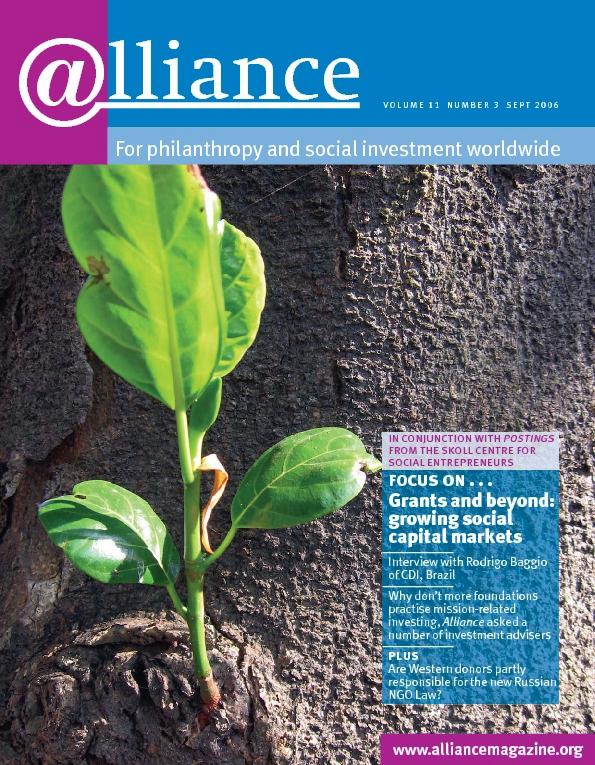David Bonbright raises two interesting questions in his response to Jo Andrews’ article about the Strategic Fund for Turkey (SFT).
One is about local ownership or ‘community feet’ for the SFT. This is a work in progress and the Fund will change as it grows. At this stage the Fund’s priorities are shaped by the experience of the two consultants on the ground – one of whom is Turkish. The next step is to establish a Turkish advisory board to provide a sounding board and better oversight – although the decisions about which grants to make will remain with donors themselves in the final instance, if they wish it.
There are also currently some attempts being made to establish a more focused approach to Turkish philanthropy, led by one of the leading business associations in Turkey. We are in contact with this initiative and expect to collaborate where appropriate. A long-term goal would be to register the Fund in Turkey itself and move towards the point where it could provide a link from Turkish donors to domestic civil society.
But we have to recognize that these are early days for such a venture. It is only in the last two years that Turkish NGOs have been allowed full independent legal status. Bonbright finds talk of ‘international standards’ hubristic, but the truth is that much of the infrastructure – including financial planning and transparent reporting – is not present among local NGOs, many of which are emerging from the political struggles of the past 20 years. In the medium term we hope that the SFT can help build professionalism among the emerging rights community in Turkey and provide the basis for a more developed and solid relationship between a Turkish philanthropy and Turkish civil society.
Bonbright also raises the issue of costs and our ambition to keep administrative costs around 10 per cent: this is a reflection of past experience rather than an aspiration. It may be worth noting that many donors, including the European Commission, the Ford Foundation and many others, only allow 7-10 per cent overheads on projects. If NGOs are expected to meet this target, why not donors too? We have a duty to ensure that charitable funds go to the beneficiaries rather than on overheads. The SFT makes a considerable number of general grants, rather than project grants. This fulfils two objectives – we do not need staff or consultants to be concerned with detailed monitoring of individual projects, which absorbs much donor time and energy. Secondly, we can focus on building the capacity of the organizations, which is easy to monitor, rather than checking up how far they are fulfilling our ‘imposed’ objectives.
One of the least studied aspects of civil society around the world is the impact of imposed donor priorities upon NGOs and others. In my experience of being a director of an NGO, I can personally say how complex it is to retain a strategic vision for the organization when you are wholly dependent upon project funding. I’m also aware of how project funding encourages a kind of deceit about the cost of, and application of overheads to the budget of an organization. It is not hubristic to bypass these concerns, merely common sense.
Andrew Puddephat
Consultant to SFT





Comments (0)